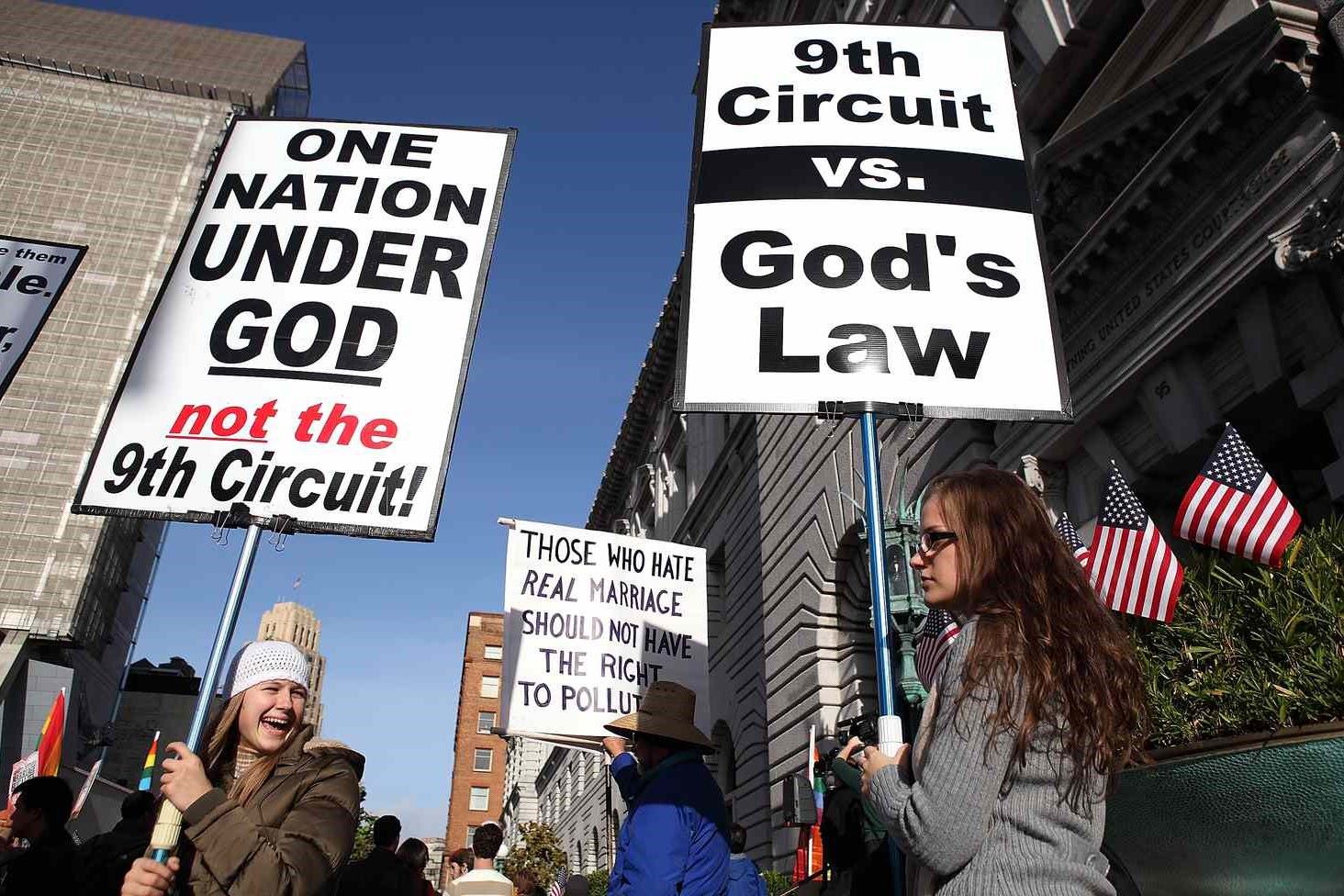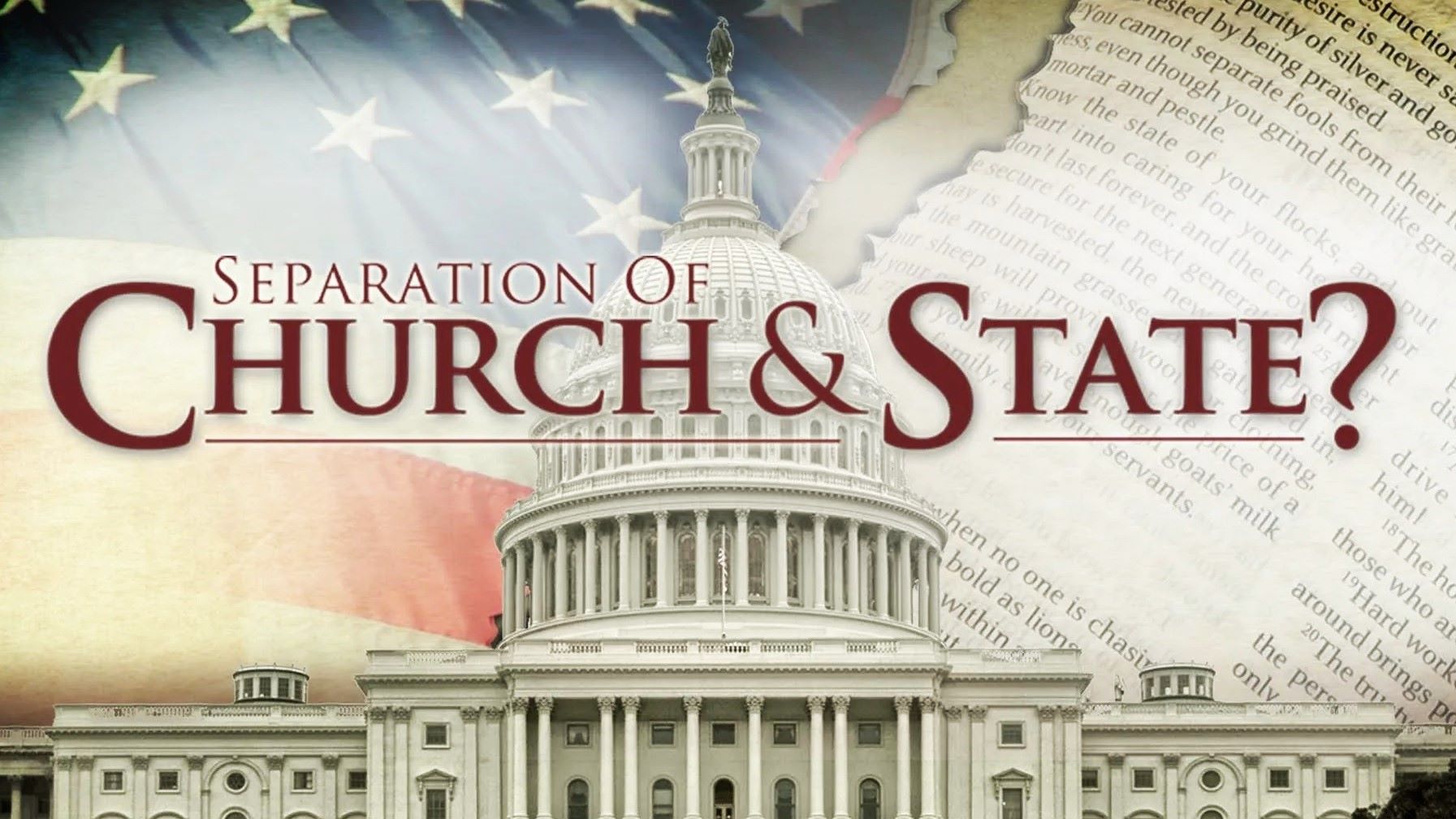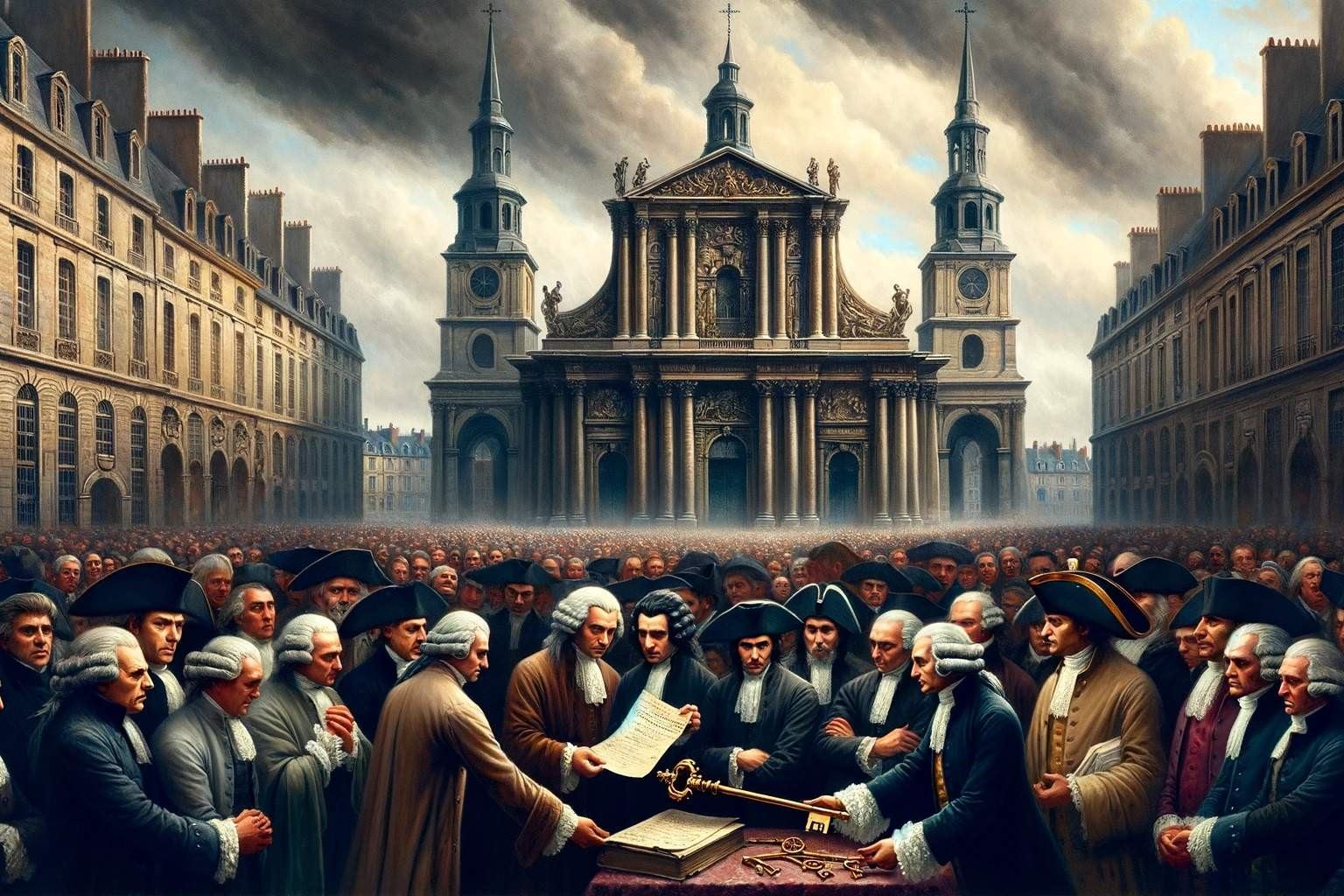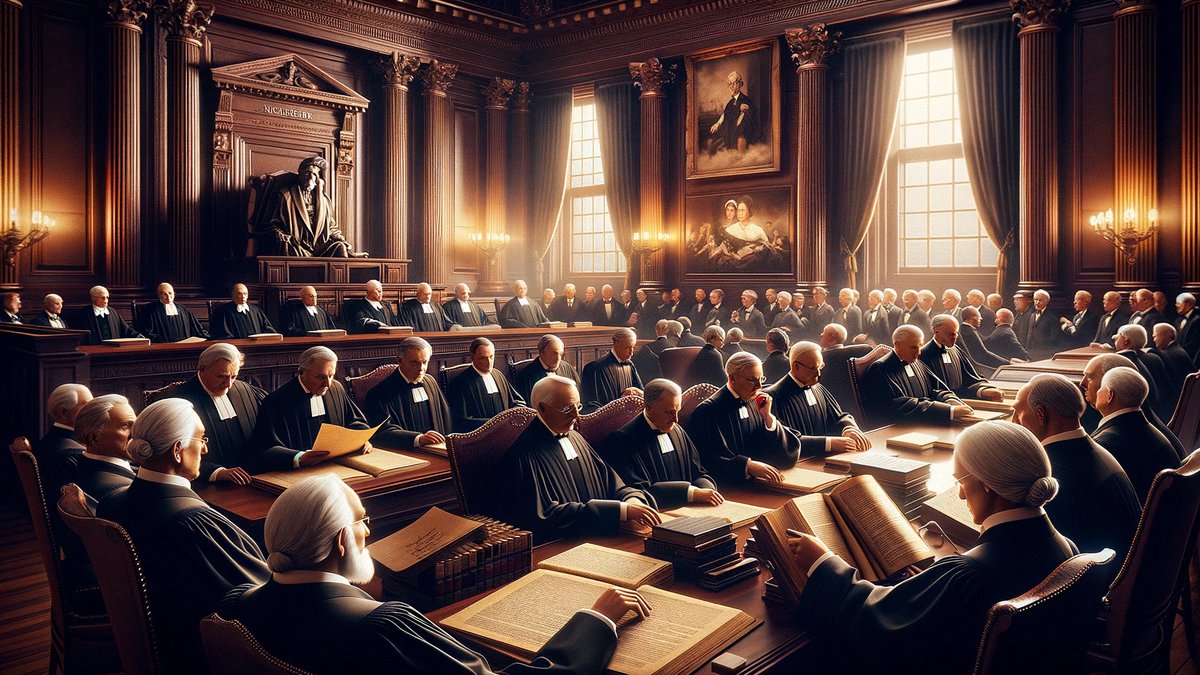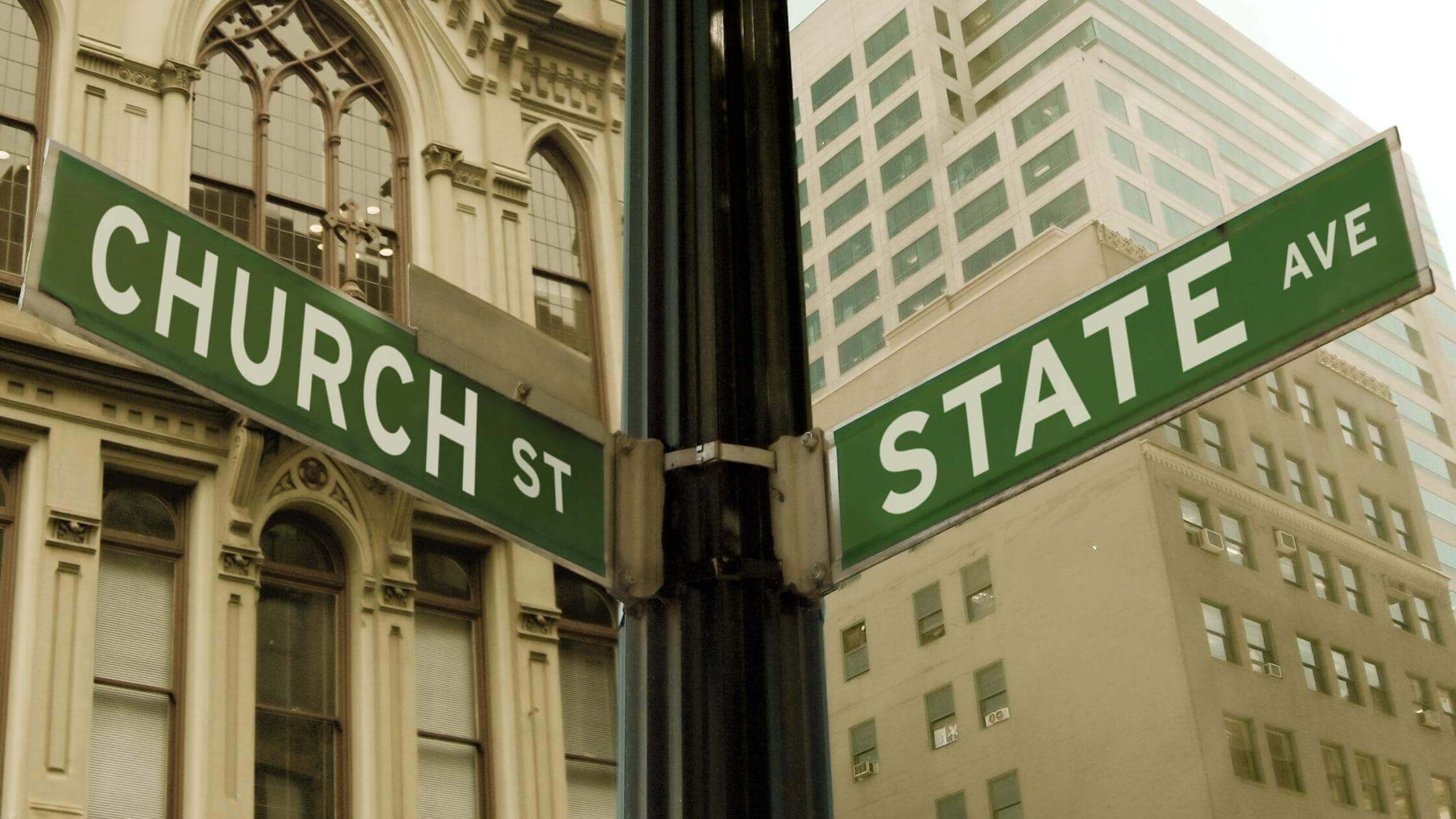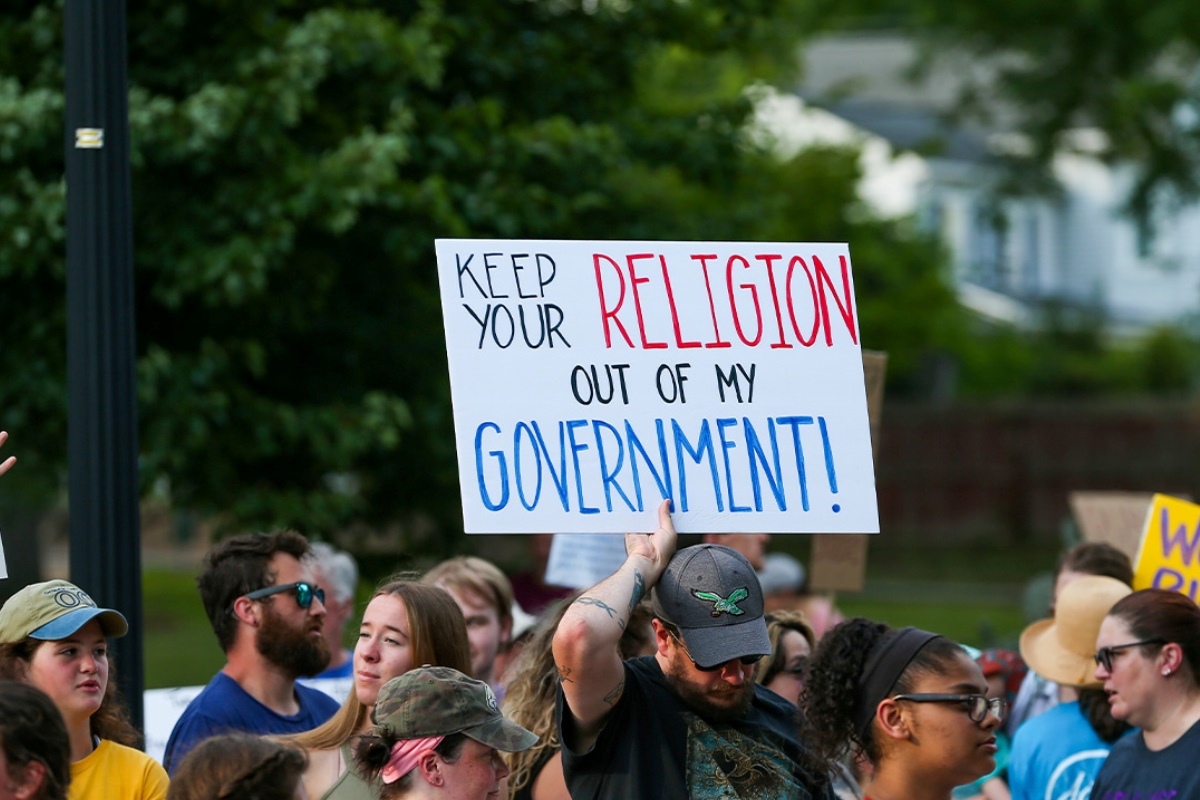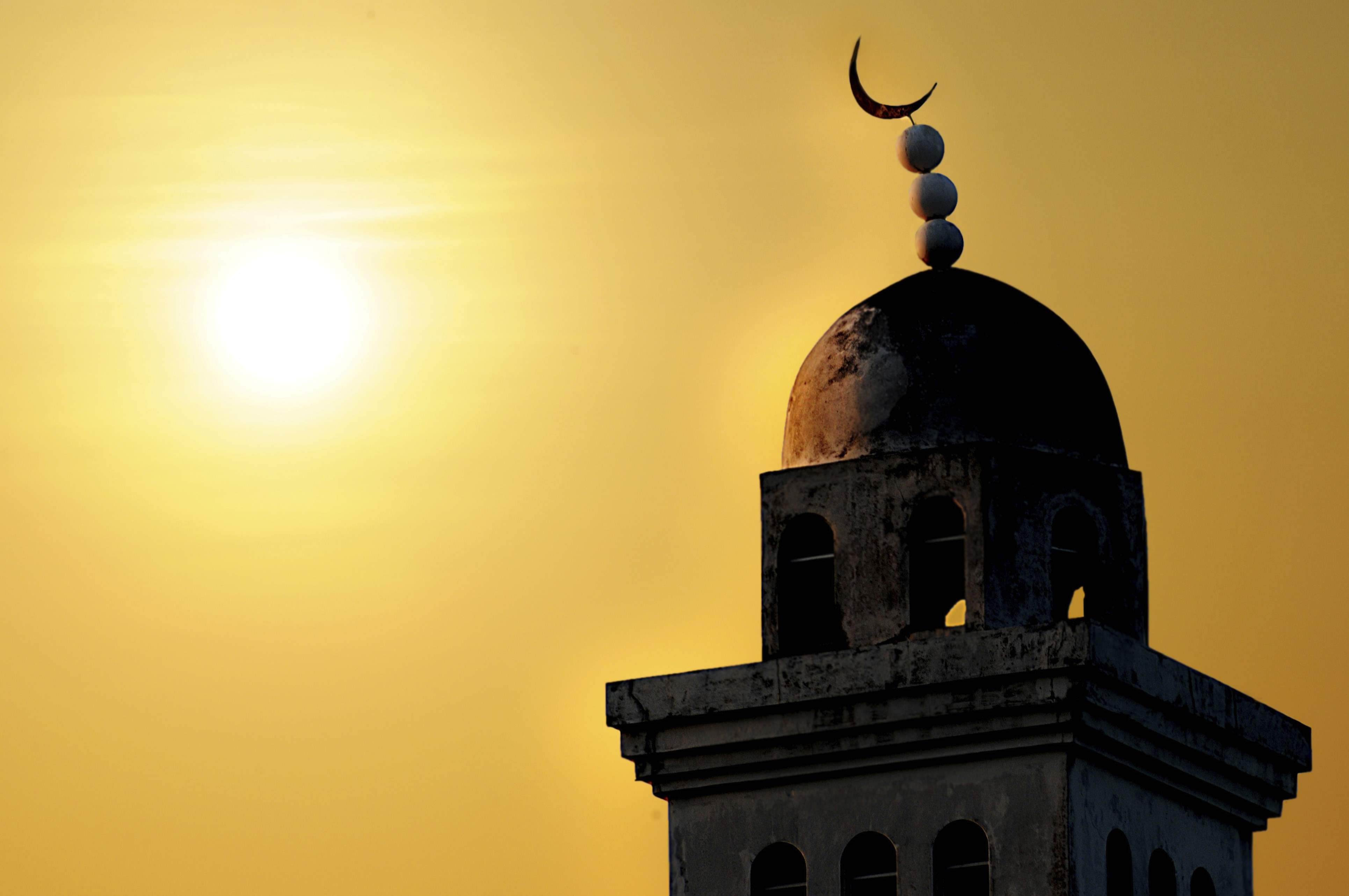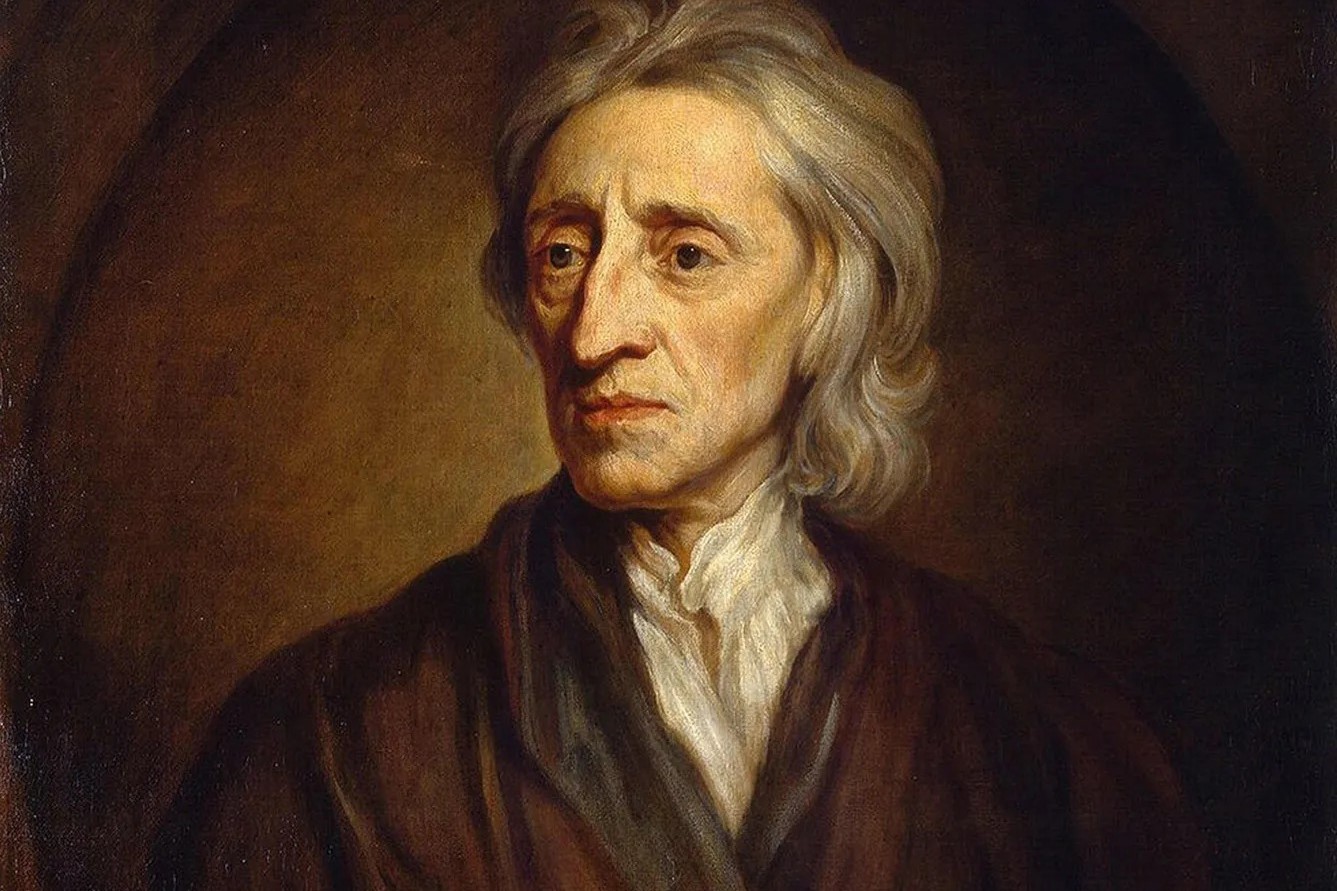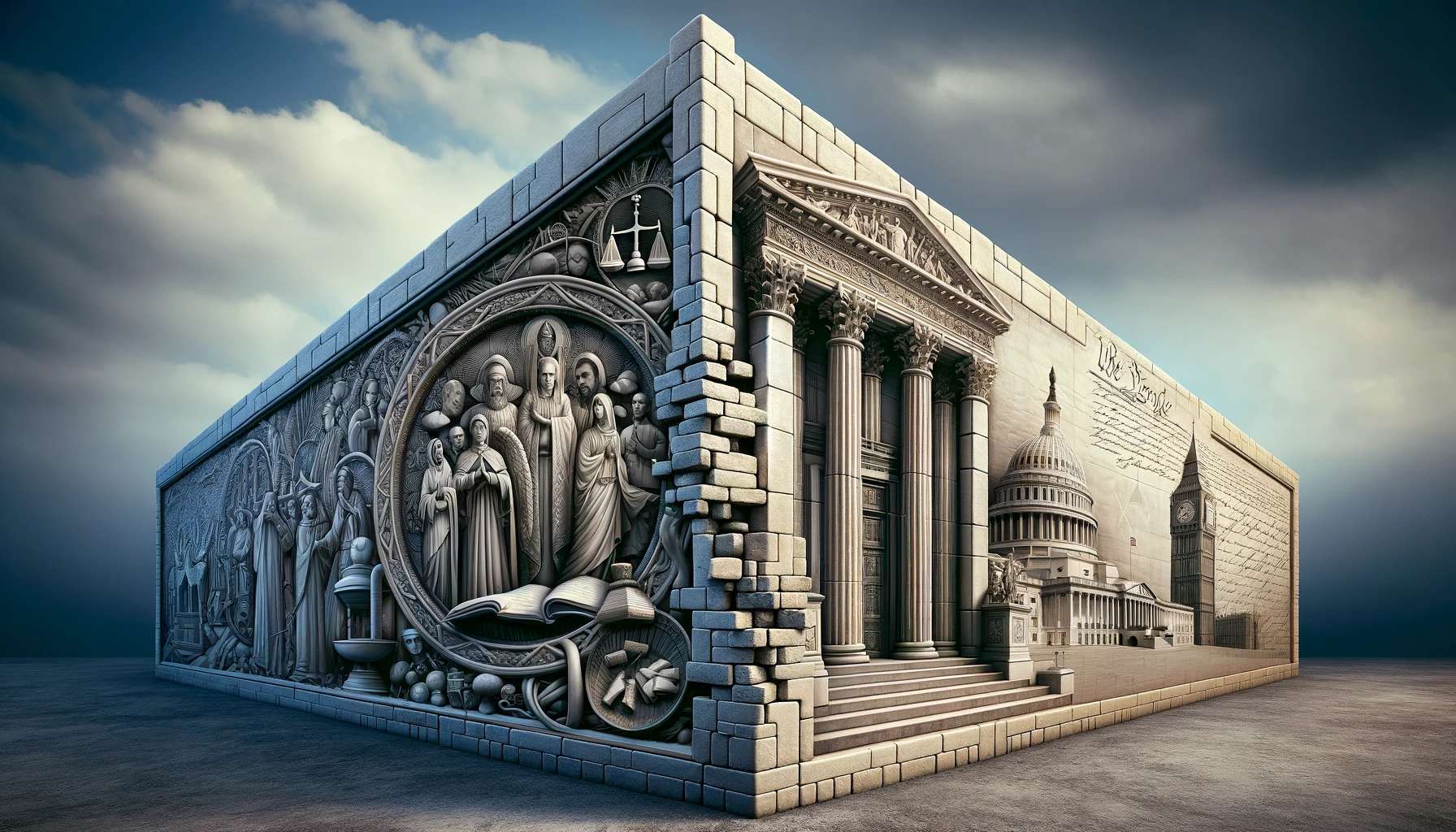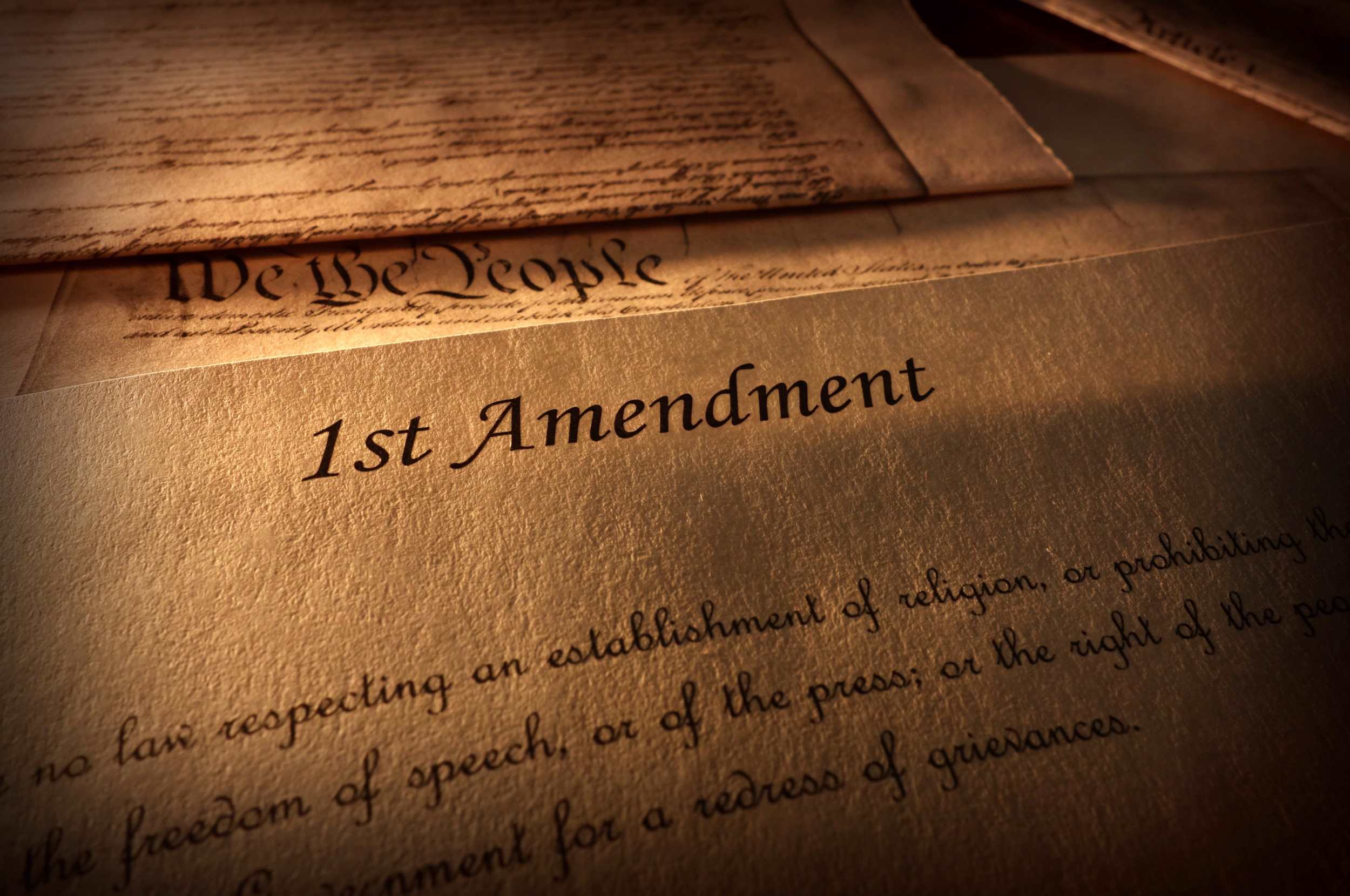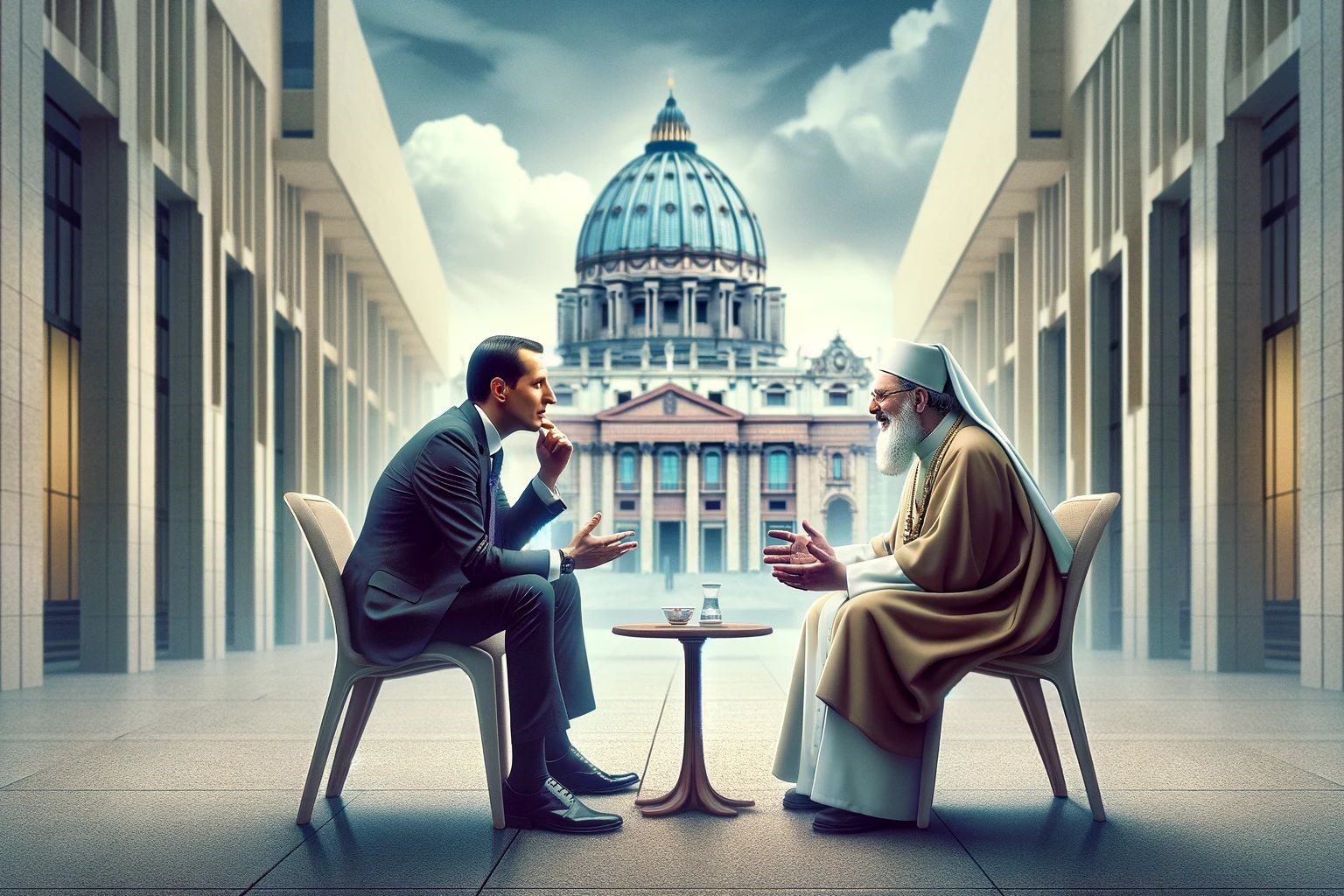Home>Theology and Spirituality>To What Extent Did Thomas Jefferson Support A Complete Separation Of Church And State?
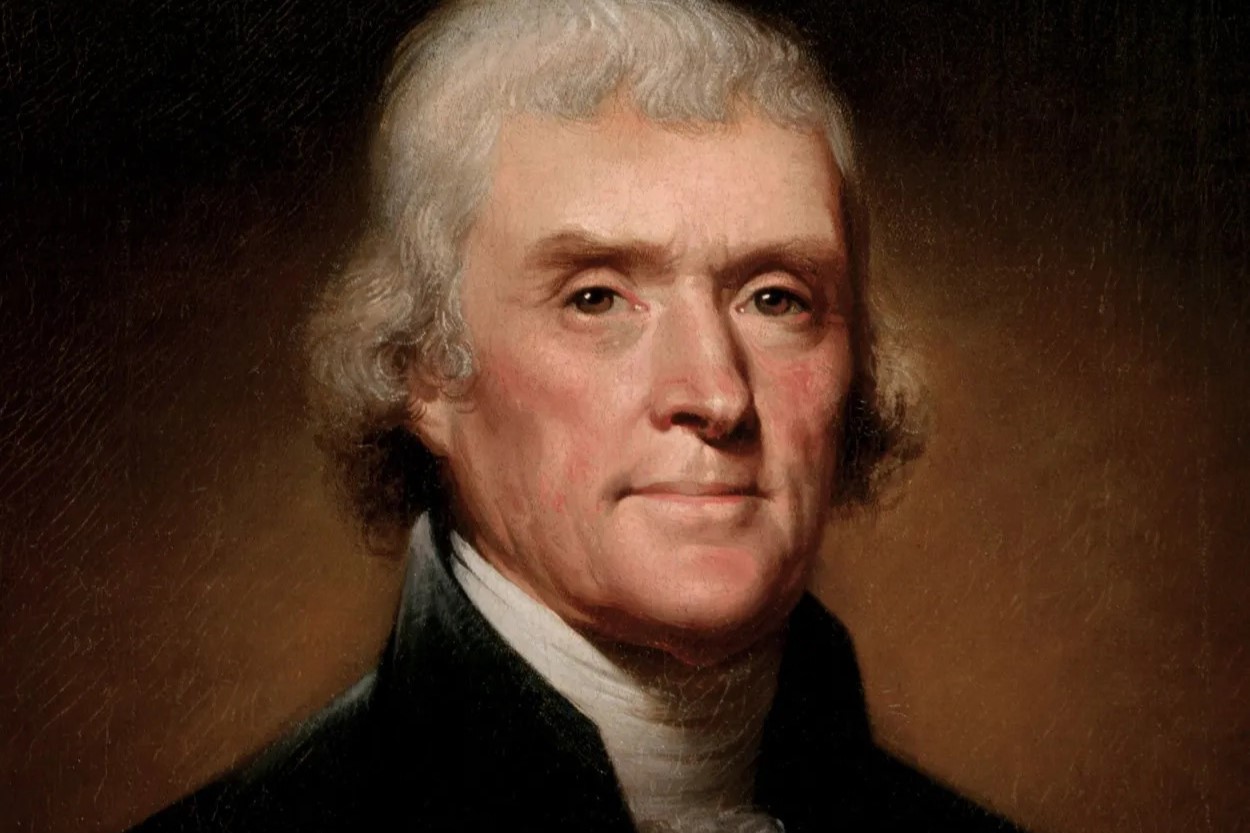

Theology and Spirituality
To What Extent Did Thomas Jefferson Support A Complete Separation Of Church And State?
Published: February 11, 2024
Peter Smith, Editorial Director at Christian.net, combines deep insights into faith, politics, and culture to lead content creation that resonates widely. Awarded for his contributions to religious discourse, he previously headed a major organization for religious communicators, enhancing dialogue on faith's societal impacts.
Explore Thomas Jefferson's stance on the separation of church and state and its impact on theology and spirituality in American history. Understand the extent of his support for this fundamental principle.
(Many of the links in this article redirect to a specific reviewed product. Your purchase of these products through affiliate links helps to generate commission for Christian.net, at no extra cost. Learn more)
Table of Contents
Introduction
Thomas Jefferson, one of the founding fathers of the United States, is often associated with the concept of the separation of church and state. His views on this matter have sparked significant debate and have had a lasting impact on the interpretation of the First Amendment to the United States Constitution. Understanding the extent of Jefferson's support for the complete separation of church and state requires a comprehensive exploration of his early influences, his pivotal role in establishing religious freedom in Virginia, his views on the separation of church and state in the United States, and his actions as president regarding this fundamental issue.
Jefferson's stance on the separation of church and state is deeply rooted in the historical context of the United States' formation. His contributions to shaping the nation's approach to religious freedom and the relationship between government and religion are essential to understanding the broader conversation about this topic. By delving into the various facets of Jefferson's beliefs and actions, we can gain valuable insights into the complexities of his position and its enduring significance in American history and constitutional law.
Early Influences on Thomas Jefferson's Views on Church and State
Thomas Jefferson's perspectives on the separation of church and state were profoundly shaped by his early experiences and the intellectual milieu of his time. Born into a family of the Virginia gentry in 1743, Jefferson was exposed to diverse religious influences from an early age. His father, Peter Jefferson, was a vestryman in the local Anglican Church, and his mother came from a prominent family with strong ties to the Church of England. These familial connections provided Jefferson with an intimate understanding of the role of religion in colonial Virginia society.
Jefferson's education further contributed to the formation of his views on church and state. He studied at the College of William and Mary, where he was exposed to the prevailing Enlightenment ideas that emphasized reason, individual liberty, and the separation of religious and governmental institutions. The writings of influential philosophers such as John Locke and Francis Bacon, which Jefferson encountered during his academic pursuits, instilled in him a deep appreciation for the importance of religious freedom and the need to safeguard it from undue government influence.
Moreover, Jefferson's exposure to the religious diversity of Virginia, where Anglicans, Baptists, Presbyterians, and other denominations coexisted, fostered his belief in the necessity of protecting religious pluralism. He witnessed firsthand the tensions and conflicts that arose when a dominant religious institution wielded significant political power, leading him to advocate for a more equitable and inclusive approach to religious practice and belief.
In addition to these formative influences, Jefferson's correspondence and interactions with influential figures of his time, including his close friend and political ally James Madison, further solidified his commitment to the principle of separating church and state. Through these relationships, Jefferson engaged in robust discussions about the implications of religious freedom and the potential dangers of government entanglement in religious affairs.
Overall, the early influences on Thomas Jefferson's views on church and state, encompassing his familial background, education, exposure to religious diversity, and intellectual exchanges, laid the groundwork for his enduring advocacy of the separation of church and state. These formative experiences would profoundly shape his contributions to the development of religious freedom in the United States and his enduring legacy as a proponent of the fundamental principle of religious liberty.
Jefferson's Role in the Establishment of Religious Freedom in Virginia
Thomas Jefferson played a pivotal role in the establishment of religious freedom in Virginia, leaving an indelible mark on the trajectory of religious liberty in the United States. His efforts in this arena were encapsulated in his drafting of the Virginia Statute for Religious Freedom, a seminal document that laid the groundwork for the separation of church and state at the state level and influenced the broader conversation about religious freedom in the fledgling nation.
The impetus for the Virginia Statute for Religious Freedom can be traced back to the religious landscape of colonial Virginia, where the Anglican Church enjoyed privileged status as the established church. This arrangement engendered religious inequalities and infringed upon the rights of dissenting religious groups. Jefferson, deeply attuned to the perils of religious coercion and the suppression of religious diversity, sought to rectify these injustices through legislative means.
In 1777, Jefferson introduced a bill in the Virginia General Assembly aimed at disestablishing the Anglican Church and safeguarding the rights of all religious denominations. Although the bill faced initial resistance, Jefferson's unwavering commitment to the cause of religious freedom eventually bore fruit. In 1786, the Virginia Statute for Religious Freedom was enacted into law, marking a watershed moment in the advancement of religious liberty.
The statute articulated two fundamental principles that would reverberate through American jurisprudence: the absolute freedom of individuals to profess and practice their religious beliefs without facing persecution or discrimination, and the prohibition of government interference in religious matters. Jefferson's eloquent articulation of these principles underscored his profound understanding of the inherent rights of conscience and the imperative of shielding religion from the coercive powers of the state.
The passage of the Virginia Statute for Religious Freedom not only dismantled the vestiges of religious establishment in Virginia but also served as a beacon of inspiration for the framers of the First Amendment to the United States Constitution. Jefferson's unwavering advocacy for religious freedom in Virginia laid the groundwork for the broader constitutional protections enshrined in the First Amendment, which safeguarded the separation of church and state at the federal level.
In essence, Jefferson's instrumental role in the establishment of religious freedom in Virginia exemplifies his enduring commitment to the principles of religious liberty and the separation of church and state. His visionary leadership in this realm continues to resonate as a cornerstone of American constitutional law and a testament to the enduring legacy of one of the nation's foremost champions of religious freedom.
Jefferson's Views on the Separation of Church and State in the United States
Thomas Jefferson's views on the separation of church and state in the United States were deeply rooted in his unwavering commitment to safeguarding religious freedom and preventing the encroachment of governmental authority on matters of faith. As the principal author of the Declaration of Independence and a staunch advocate for individual liberties, Jefferson articulated a clear and resolute stance on the necessity of maintaining a distinct separation between religious institutions and the apparatus of the state.
Jefferson adamantly believed that the establishment of a wall of separation between church and state was imperative to preserve the autonomy of religious institutions and protect the rights of individuals to freely exercise their faith without undue interference from the government. His articulation of this principle in his famous letter to the Danbury Baptist Association in 1802 encapsulated his steadfast conviction that the First Amendment erected a barrier precluding the government from intruding into matters of religion and prohibiting the establishment of a state religion.
Moreover, Jefferson's views on the separation of church and state were intricately linked to his broader vision of a pluralistic society where individuals of all religious persuasions could coexist harmoniously without fear of persecution or favoritism. His advocacy for religious pluralism and the disentanglement of religious institutions from state control underscored his profound belief in the inherent rights of conscience and the imperative of upholding religious diversity as a cornerstone of American society.
Furthermore, Jefferson's views on the separation of church and state were not merely theoretical constructs but were informed by his practical endeavors to ensure the implementation of these principles in the fabric of American governance. As the third President of the United States, Jefferson demonstrated his commitment to upholding the separation of church and state by eschewing religious proclamations and refraining from entangling the federal government in religious affairs, thereby setting a precedent for the non-establishment of religion at the highest echelons of power.
In essence, Thomas Jefferson's views on the separation of church and state in the United States epitomized his unwavering dedication to preserving religious freedom, fostering religious pluralism, and insulating religious institutions from undue government influence. His enduring legacy as a proponent of the separation of church and state continues to resonate as a foundational principle of American constitutional law and a testament to the enduring significance of his contributions to the nation's commitment to religious liberty.
Jefferson's Actions as President Regarding Church and State
As the third President of the United States, Thomas Jefferson's actions regarding church and state reflected his steadfast commitment to upholding the principles of religious freedom and the separation of religious institutions from the sphere of governmental influence. Jefferson's presidency was marked by a series of deliberate measures aimed at reinforcing the constitutional barriers between church and state and promoting a climate of religious pluralism and tolerance.
One of Jefferson's notable actions as president was his refusal to issue proclamations for national days of fasting and thanksgiving, a tradition observed by his predecessors. By abstaining from such religious proclamations, Jefferson sought to underscore the secular nature of the federal government and avoid any semblance of official endorsement of religious practices. This deliberate departure from the precedent set by previous administrations exemplified Jefferson's commitment to maintaining a strict separation between matters of faith and the functions of the presidency.
Furthermore, Jefferson's administration demonstrated a steadfast adherence to the principles of religious neutrality and non-establishment of religion. His commitment to these principles was evident in his interactions with religious minorities, including the reassurance he provided to the Ursuline Sisters of New Orleans, affirming the government's respect for religious diversity and its commitment to non-interference in religious affairs. Jefferson's actions conveyed a clear message that the federal government would not favor or discriminate against any particular religious denomination, thereby upholding the foundational tenets of the separation of church and state.
Additionally, Jefferson's presidency witnessed his unwavering support for the disestablishment of state religion at the federal level. His administration championed the dismantling of religious establishments in the newly acquired Louisiana Territory, ensuring that religious freedom and the separation of church and state were extended to the inhabitants of these territories. This proactive approach underscored Jefferson's dedication to upholding the constitutional principles of religious liberty and the non-establishment of religion in all facets of federal governance.
In essence, Thomas Jefferson's actions as president regarding church and state exemplified his resolute commitment to preserving the separation of religious institutions from governmental authority and fostering an environment where individuals of all religious persuasions could coexist without fear of persecution or favoritism. His presidency left an indelible imprint on the nation's approach to religious freedom and the enduring significance of the separation of church and state as a foundational principle of American governance.
Conclusion
In conclusion, the extent of Thomas Jefferson's support for the complete separation of church and state is deeply rooted in his unwavering commitment to safeguarding religious freedom, fostering religious pluralism, and insulating religious institutions from undue government influence. From his early influences and pivotal role in establishing religious freedom in Virginia to his steadfast advocacy for the separation of church and state at the federal level, Jefferson's legacy as a proponent of this fundamental principle continues to resonate as a cornerstone of American constitutional law.
Jefferson's formative experiences, including his familial background, education, exposure to religious diversity, and intellectual exchanges, laid the groundwork for his enduring advocacy of the separation of church and state. These early influences shaped his unwavering dedication to the principles of religious liberty and the imperative of protecting religious diversity in American society.
His instrumental role in the establishment of religious freedom in Virginia, exemplified by the drafting and enactment of the Virginia Statute for Religious Freedom, set a precedent for the broader constitutional protections enshrined in the First Amendment. Jefferson's visionary leadership in this realm continues to serve as a testament to the enduring legacy of one of the nation's foremost champions of religious freedom.
Furthermore, Jefferson's views on the separation of church and state, articulated in his famous letter to the Danbury Baptist Association, underscored his steadfast conviction that the First Amendment erected a barrier precluding the government from intruding into matters of religion and prohibiting the establishment of a state religion. His practical endeavors as the third President of the United States further demonstrated his commitment to upholding the principles of religious freedom and the separation of religious institutions from the sphere of governmental influence.
In essence, Thomas Jefferson's enduring legacy as a proponent of the separation of church and state epitomizes his unwavering dedication to preserving religious freedom, fostering religious pluralism, and insulating religious institutions from undue government influence. His contributions to the development of religious freedom in the United States continue to resonate as a foundational principle of American constitutional law, serving as a testament to the enduring significance of his commitment to the nation's commitment to religious liberty.
